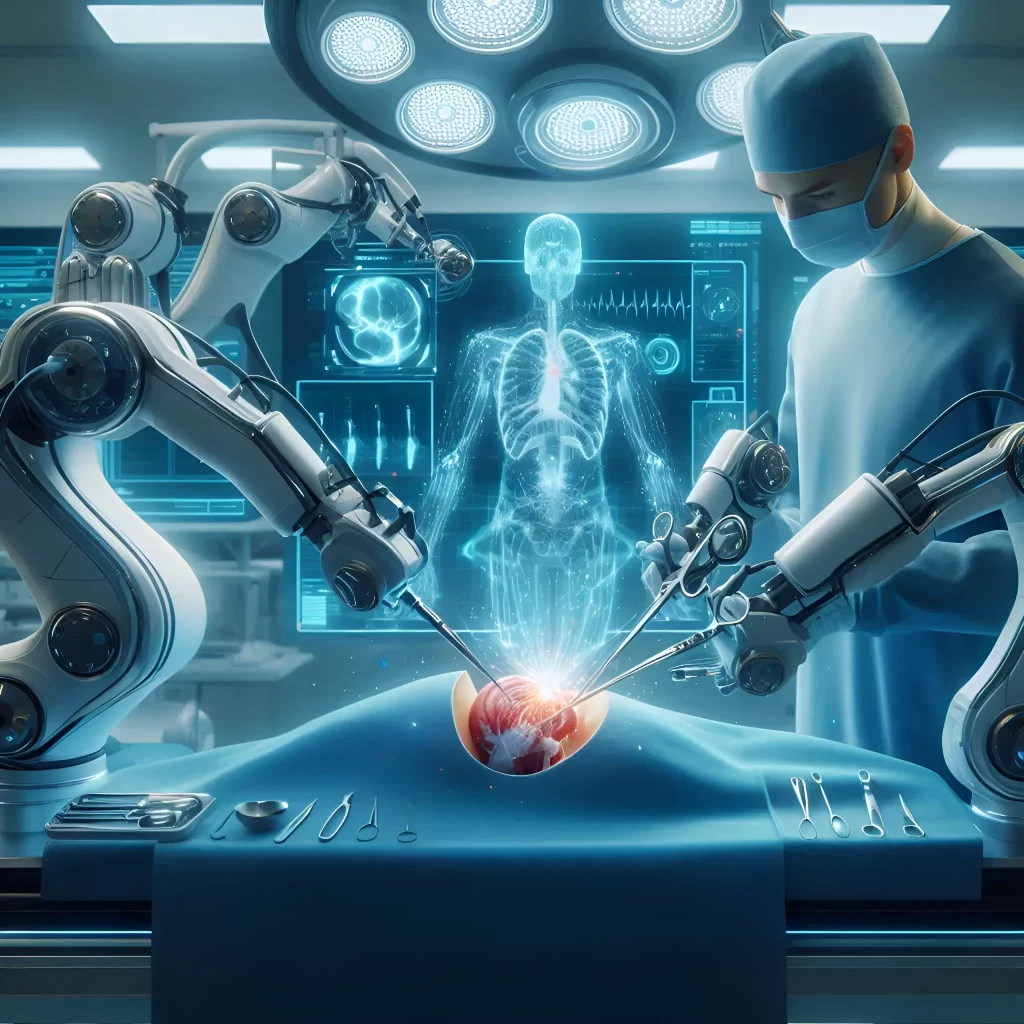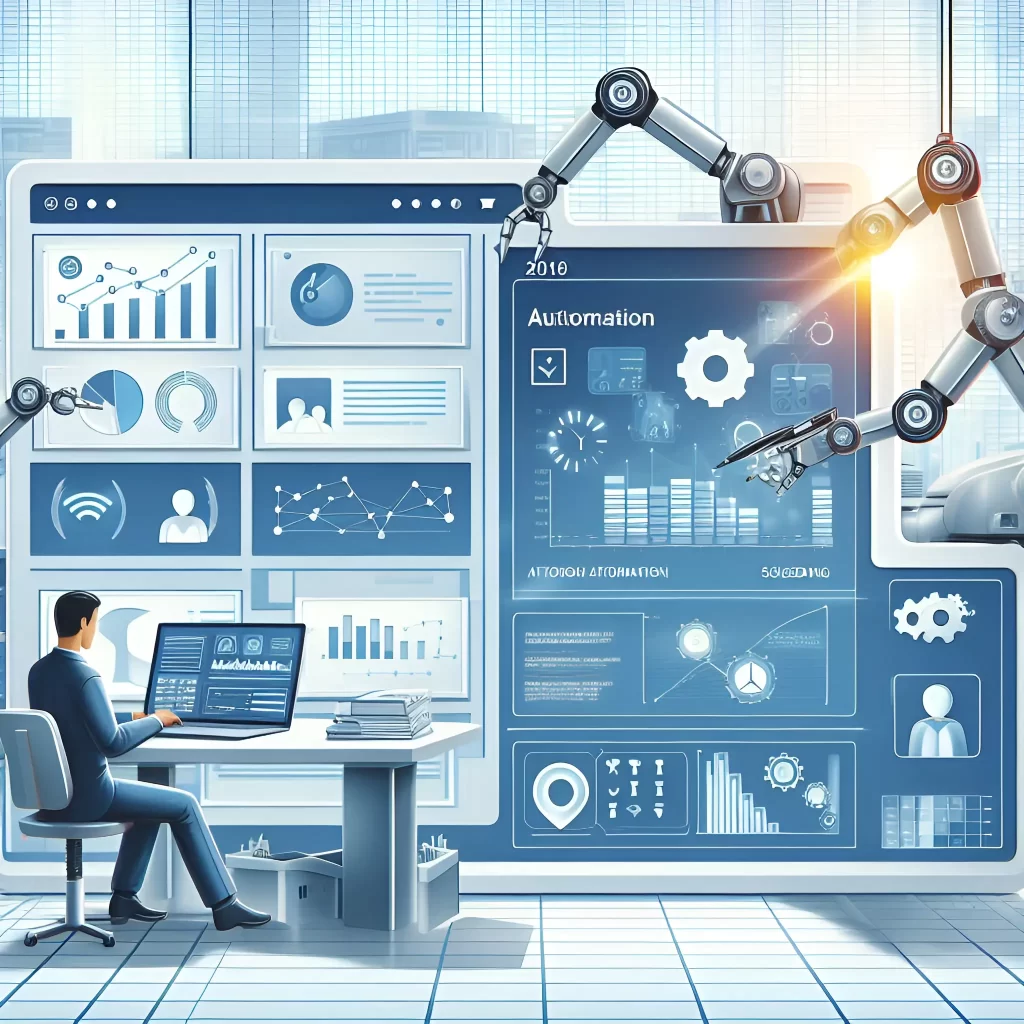
Key Takeaways
- AI tools streamline HR processes like recruitment, onboarding, payroll, and employee management.
- Implementing AI-driven workflow automation enhances efficiency, accuracy, and data analysis.
- AI-powered solutions improve employee engagement, performance management, learning, development, and retention.
- Integrating AI in HR requires best practices such as conducting needs assessments, ensuring data quality, and providing training.
- Future trends in AI for HR include AI-driven wellness programs and advanced talent analytics.
In today’s rapidly evolving business environment, the role of artificial intelligence (AI) in Human Resources (HR) is becoming increasingly pivotal.
As organizations strive for efficiency and accuracy, many are turning towards data-driven decision-making and AI-powered solutions. AI tools for HR workflow automation are at the forefront, helping to streamline and optimize processes such as recruitment, onboarding, payroll, and employee management.
This blog aims to inform HR professionals and business leaders about the transformative power of AI in HR. We will explore how various AI solutions enhance employee engagement, drive performance management, facilitate learning and development, and improve retention. Understanding and adopting these AI tools is not just beneficial but essential for modern HR practices.
AI Tools for HR Workflow Automation
Definition and Significance
HR workflow automation refers to the use of technology to automate repetitive and time-consuming HR tasks. By leveraging AI, HR departments can significantly reduce manual errors, save time, and focus on strategic initiatives. According to Forbes, AI has a profound impact on HR by enhancing efficiency and reducing operational costs. The History of AI provides a comprehensive overview of how AI has evolved to become integral in various business functions.
Overview of Leading AI Tools
- Workday: Specializes in HR management and analytics, providing comprehensive insights and reports.
- BambooHR: Focuses on employee data management and onboarding, simplifying the process for HR teams.
- Zoho People: Facilitates attendance tracking and performance reviews, making performance management seamless.
- ADP Workforce Now: Handles payroll and benefits administration, ensuring compliance and accuracy.
Benefits of Implementing AI-Driven Workflow Automation
The benefits of AI-driven workflow automation are manifold:
- Increased Efficiency: Streamlines operations and frees HR professionals to focus on strategic priorities.
- Improved Accuracy: Reduces human error in data entry and processing.
- Enhanced Data Analysis: Provides data-driven insights for better decision-making.
- Better Compliance: Keeps organizations compliant with labor laws and regulations.
A Gartner report highlights the operational and financial benefits of using AI in HR, emphasizing the return on investment and strategic advantages. Additionally, understanding the differences between AI vs. Human Intelligence can help organizations better implement these technologies.
AI-Driven Performance Management
Enhancement of Performance Management Systems
AI integrates seamlessly with performance management systems to offer real-time feedback, continuous performance tracking, and predictive analytics. AI-driven performance management involves assessing, monitoring, and enhancing employee performance through sophisticated data analysis and insights. For a deeper understanding of how AI is reshaping job roles, refer to How AI and Jobs Will Change in the Future.
Key Features of AI-Driven Tools
- Automated Goal Setting and Tracking: Helps set personalized goals and monitors progress.
- Sentiment Analysis from Employee Feedback: Uses AI to analyze feedback and understand employee sentiments.
- Predictive Analytics: Identifies high performers and potential issues early on.
- Personalized Development Plans: Tailors learning paths based on performance data.
The Harvard Business Review discusses how AI transforms performance management by making evaluations more objective and equitable.
Impact on Monitoring, Evaluating, and Improving Performance
AI tools provide objective performance evaluations by analyzing quantitative data. They play a crucial role in identifying skill gaps, recommending training, and ultimately enhancing employee satisfaction and productivity through transparent performance assessments.
How AI Helps with Employee Engagement
Strategies AI Employs to Boost Engagement
- Personalized Communication: Utilizes chatbots and AI platforms for customized interactions. Best AI Chatbot Software for Small Businesses explores top tools that enhance personalized communication.
- Sentiment Analysis: Analyzes surveys and social media interactions to gauge employee sentiment.
- Tailored Learning Opportunities: Provides personalized career development paths.
Examples of AI Tools Designed to Enhance Engagement
- TINYpulse: Offers continuous employee feedback and tracks engagement metrics.
- Culture Amp: Conducts employee surveys and delivers actionable insights.
- 15Five: Facilitates weekly check-ins and tracks performance trends.
A McKinsey report highlights AI’s significant role in elevating employee engagement through customized and meaningful interactions.
Case Studies or Statistics Showcasing Improved Engagement
Organizations adopting AI tools often report impressive engagement metrics, such as a 20% increase in satisfaction scores or a 15% reduction in turnover rates, illustrating the positive impact of AI on workforce engagement.
AI-Powered Learning and Development Tools
Role of AI in Customizing and Enhancing L&D Programs
AI personalizes learning experiences, catering to individual employee needs and career goals. By identifying skill gaps and recommending relevant training, AI-powered L&D tools radically enhance employee development.
Overview of AI-Powered Tools Facilitating Training and Growth
- LinkedIn Learning: Uses AI to suggest career-path-specific courses.
- Coursera for Business: Offers skill development recommendations.
- Udemy for Business: Provides personalized learning paths with progress monitoring.
- IBM Watson Talent: Facilitates personalized learning experiences and tracks development.
A PwC report supports the effectiveness of AI in promoting learning and development, citing increased employee skills and organizational agility.
Benefits for Employees and Organizations
Employees gain enhanced skills and knowledge, leading to better performance, while organizations benefit from a more agile and capable workforce. Testimonials and success metrics often show increased employee satisfaction and retention due to prioritizing personal growth.
How AI Helps with Employee Retention
Analysis of AI in Predicting and Mitigating Employee Turnover
Through sophisticated data analysis, AI can predict potential turnover by examining engagement scores and performance data. Predictive analytics empowers HR to identify at-risk employees and provide timely interventions.
AI Strategies and Tools Contributing to Higher Retention Rates
- Workday: Offers comprehensive employee lifecycle management.
- SAP SuccessFactors: Utilizes predictive analytics for retention insights.
- Visier: Specializes in workforce planning and retention strategies.
A Deloitte study highlights how AI can effectively increase employee retention by enabling timely interventions and fostering loyalty.
Success Stories of Organizations Using AI to Retain Top Talent
Case studies often show significant reductions in turnover rates and improved loyalty scores, recognizing the effectiveness of AI-driven strategies in retaining top talent.
Integrating AI Solutions in HR Processes
Best Practices for Implementing AI Tools within Existing HR Systems
- Conduct a Needs Assessment: Identify HR processes that can benefit from AI.
- Ensure Data Quality: Maintain high data integrity when integrating AI.
- Involve Key Stakeholders: Engage HR professionals and IT teams in the process.
- Provide Training and Support: Empower HR staff with the necessary training to use AI tools effectively.
For detailed strategies, refer to Top 10 Everyday Applications of AI You Didn’t Know About on best practices for AI integration in HR.
Potential Challenges and How to Overcome Them
- Data Privacy and Security: Ensure robust security measures and compliance.
- Resistance to Change: Promote a culture of innovation and support change management.
- Cost of Implementation: Focus on long-term ROI to counter initial expenditures.
- Technical Integration Issues: Opt for AI solutions compatible with existing systems.
Future Trends in AI for HR and Continuous Improvement
Embracing emerging trends like AI-driven wellness programs and advanced talent analytics is crucial. A Gartner forecast outlines future trends and emphasizes adapting to AI advancements for continuous HR improvement.
Conclusion
AI tools for HR workflow automation are revolutionizing HR functions, from improving employee engagement to enhancing performance management, learning, and retention. By adopting AI, organizations can achieve more efficient, accurate, and strategic HR management. HR professionals are encouraged to explore AI solutions to elevate their operations and maintain a competitive edge in the rapidly changing work environment. Now is the time to assess your HR processes and consider how AI tools can transform your organization.
FAQ
What are the primary benefits of using AI in HR workflow automation?
AI in HR workflow automation increases efficiency by streamlining operations, improves accuracy by reducing human errors, enhances data analysis for better decision-making, and ensures better compliance with labor laws and regulations.
Which AI tools are leading the market for HR management?
Leading AI tools in HR management include Workday, BambooHR, Zoho People, and ADP Workforce Now, each offering specialized features to optimize different aspects of HR functions.
How does AI improve employee engagement?
AI improves employee engagement by enabling personalized communication through chatbots, conducting sentiment analysis to gauge employee feelings, and providing tailored learning opportunities that match individual career paths.
Can AI predict employee turnover effectively?
Yes, AI can predict employee turnover by analyzing engagement scores, performance data, and other relevant metrics. This predictive capability allows HR to identify at-risk employees and implement timely interventions to mitigate turnover.
What are the challenges of integrating AI into existing HR systems?
Challenges include ensuring data privacy and security, overcoming resistance to change within the organization, managing the cost of implementation, and addressing technical integration issues to ensure compatibility with existing systems.


